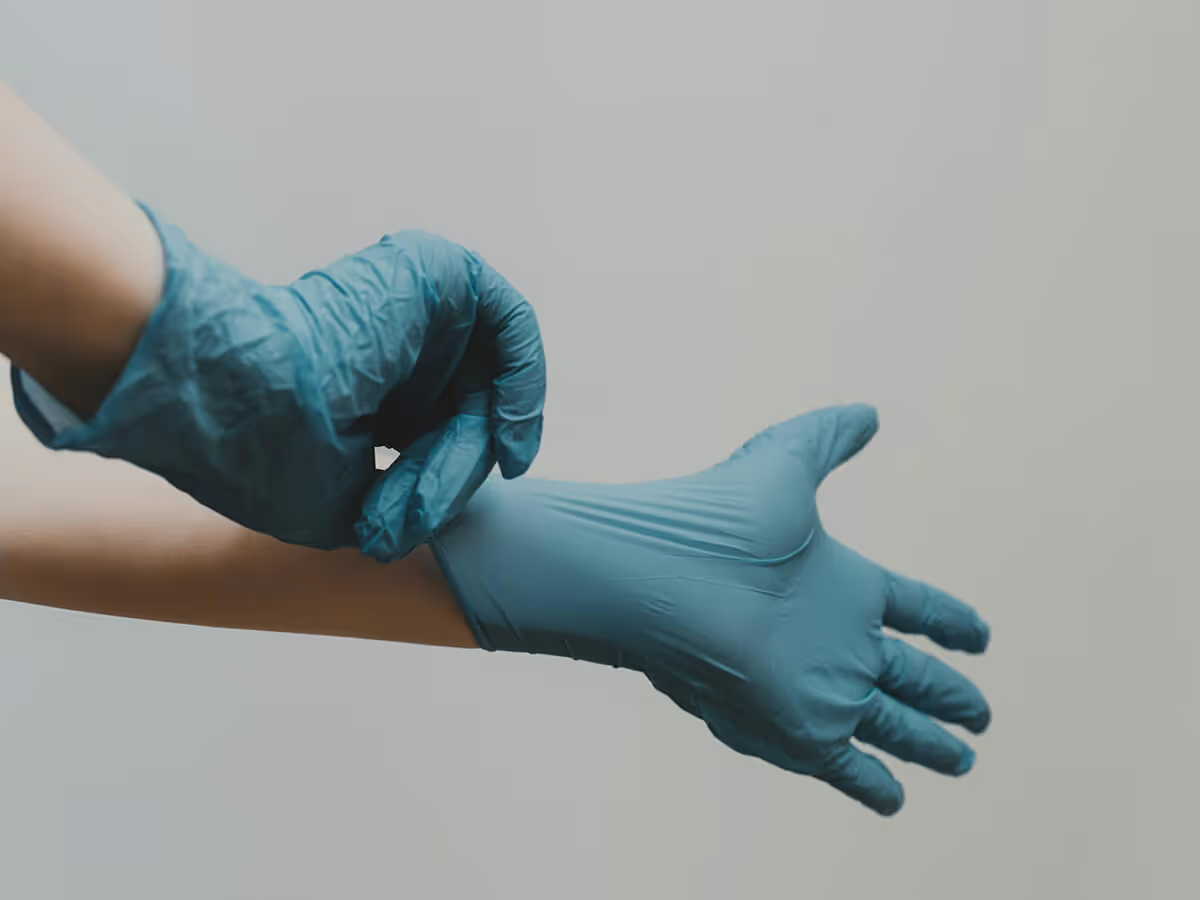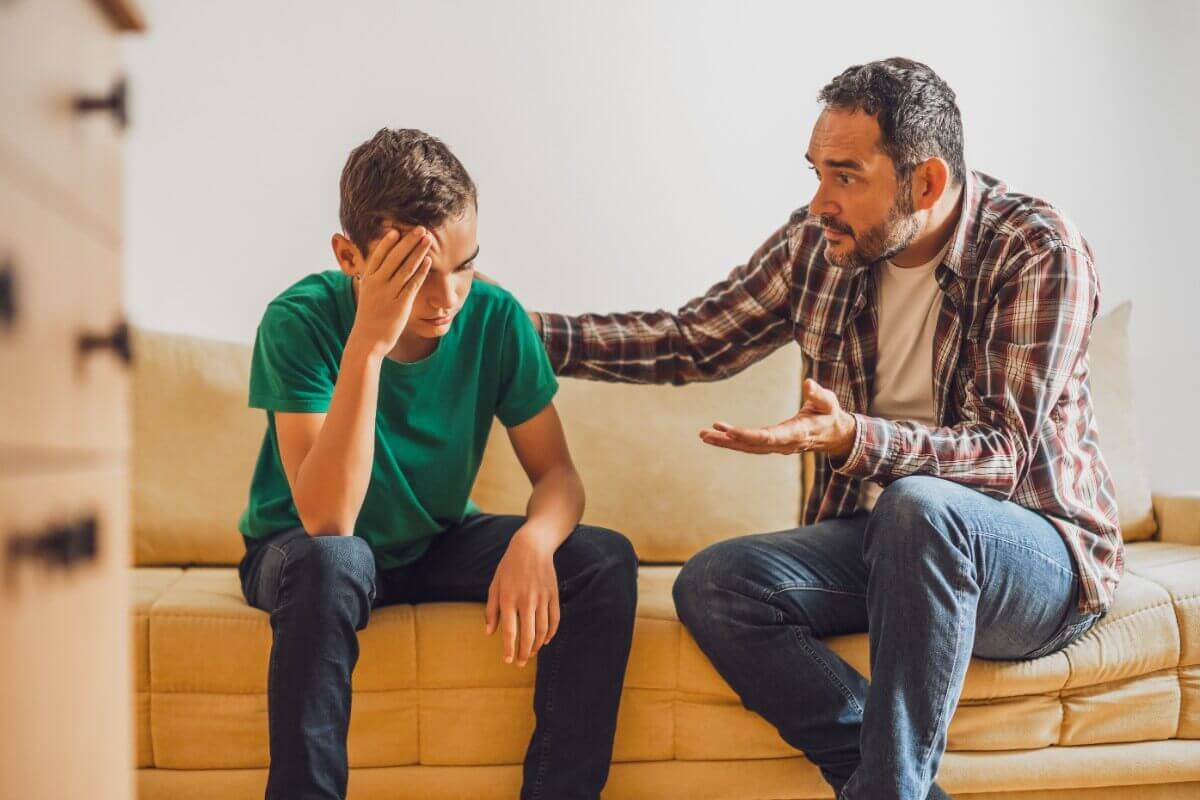
How many people can you think of that look forward to getting a shot? As a clinical psychologist with tons of experience successfully treating needle phobia, this is something I often ask my patients. Most reply that they cannot think of anyone who enjoys getting jabbed. This is because fear and anxiety around needles is absolutely normal.
However, for approximately 50% of children and 20% of adults, fear of needles can be overwhelming and can negatively impact both their physical and mental health. Needle phobia, also known as trypanophobia, is an intense fear of needles or injections that often leads people to avoid getting vaccines, blood draws, or other important medical procedures. Luckily, if you are someone who experiences intense anxiety around needles, there is help!
Needle phobia symptoms
- Intense fear or anxiety that is out of proportion to the danger posed by the needles
- Panic attacks and/or panic symptoms (nausea, increase heart rate, increase blood pressure, shaking, sweating, etc)
- Fainting
- Avoidance of needles or situations where needles may be used
- In children this might look like running from the exam room, needing to be held down, tantrums, tears, and pleading that often wear a parent down and result in missed appointments
- This intense fear interferes with social, occupational, academic, and other areas of functioning
Individuals who struggle with fear of needles often ask,
“Do I really need to get phobia treatment if I only get a couple shots a year?”
This is an excellent question – and the answer is, it depends. If you are afraid but are able to get the shot anyway, you probably don’t need any specialized treatment. It’s okay to be scared – let me repeat: fear and anxiety around needles is normal! That being said, for many people, the fear of needles extends beyond getting the actual shot. What starts as a fear of needles can grow into behaviors that result in a decline in mental health and often goes on to jeopardize physical health.
- Mental health: The weeks and days leading up to an upcoming appointment can be scary. People may experience catastrophic thoughts such as “What if the needle gets stuck in my arm?” or “The pain will be unbearable.” These thoughts can become all consuming. At times, the increase in anxiety coupled with racing thoughts can impact concentration at work and/or school. Additionally, you may find yourself avoiding TV shows, movies, and video games where needles may be present. These are just a few ways in which fear of needles can impact your mental health.
- Physical health: Avoiding appointments that involve a needle can inevitably impact your health. Many times, getting a shot is a preventative measure (i.e., getting the flu vaccine) or boosting our immune system – but needles can also provide lifesaving medications (i.e., insulin injections). Avoiding needles can also lead to missed diagnosis as in the case of blood draws.
If you or your child struggles with this intense fear and are at risk of jeopardizing physical or mental health, then yes, absolutely you should get phobia treatment as we know what works in terms of decreasing symptoms and increasing your quality of life.
How can you cope with a needle phobia?
- Seek out help from a mental health specialist. Cognitive behavioral therapy helps teach people how to challenge and reframe unhelpful thoughts and build new coping skills. Particularly, exposure and response prevention therapy gradually increases exposure to needles which helps to regain control over anxiety
- Use relaxation techniques such as deep breathing or grounding exercises
- Look away! There is no need to watch
- Bring support such as a family member or friend
Research suggests that 6 to 10 sessions of Cognitive Behavioral Therapy (CBT) are often effective for overcoming needle phobia1. However, the exact number of sessions you or your child might need will vary depending on the severity of the phobia, individual progress, and motivation to complete exposure therapy.
Exposure therapy, which we conduct in gradual steps, helps our clients progressively face their fear in a controlled, supportive, and collaborative environment. Some studies show that brief, targeted interventions of just 2 to 4 sessions of exposure therapy can significantly reduce symptoms 2.
For more information on how we can help you or your child overcome needle phobia, schedule an initial appointment today.
- McMurtry, C. M., Taddio, A., Pillai Riddell, R., & Shah, V. (2015). Exposure-based interventions for the management of individuals with high levels of needle fear across the lifespan: A clinical practice guideline and call for further research. Psychology, Health & Medicine, 20(1), 90-102. https://doi.org/10.1080/13548506.2014.955267
- Öst, L.-G. (1996). One-session group treatment of spider phobia. Behaviour Research and Therapy, 34(9), 707–715. https://doi.org/10.1016/0005-7967(96)00019-2
Privacy Notice: By providing your email, you understand this resource is educational only and doesn't establish a therapeutic relationship. We use Flodesk (non-HIPAA compliant) to deliver this content and general practice updates. Your email will not be shared with third parties.
How many people can you think of that look forward to getting a shot? As a clinical psychologist with tons of experience successfully treating needle phobia, this is something I often ask my patients. Most reply that they cannot think of anyone who enjoys getting jabbed. This is because fear and anxiety around needles is absolutely normal.
However, for approximately 50% of children and 20% of adults, fear of needles can be overwhelming and can negatively impact both their physical and mental health. Needle phobia, also known as trypanophobia, is an intense fear of needles or injections that often leads people to avoid getting vaccines, blood draws, or other important medical procedures. Luckily, if you are someone who experiences intense anxiety around needles, there is help!
Needle phobia symptoms
- Intense fear or anxiety that is out of proportion to the danger posed by the needles
- Panic attacks and/or panic symptoms (nausea, increase heart rate, increase blood pressure, shaking, sweating, etc)
- Fainting
- Avoidance of needles or situations where needles may be used
- In children this might look like running from the exam room, needing to be held down, tantrums, tears, and pleading that often wear a parent down and result in missed appointments
- This intense fear interferes with social, occupational, academic, and other areas of functioning
Individuals who struggle with fear of needles often ask,
“Do I really need to get phobia treatment if I only get a couple shots a year?”
This is an excellent question – and the answer is, it depends. If you are afraid but are able to get the shot anyway, you probably don’t need any specialized treatment. It’s okay to be scared – let me repeat: fear and anxiety around needles is normal! That being said, for many people, the fear of needles extends beyond getting the actual shot. What starts as a fear of needles can grow into behaviors that result in a decline in mental health and often goes on to jeopardize physical health.
- Mental health: The weeks and days leading up to an upcoming appointment can be scary. People may experience catastrophic thoughts such as “What if the needle gets stuck in my arm?” or “The pain will be unbearable.” These thoughts can become all consuming. At times, the increase in anxiety coupled with racing thoughts can impact concentration at work and/or school. Additionally, you may find yourself avoiding TV shows, movies, and video games where needles may be present. These are just a few ways in which fear of needles can impact your mental health.
- Physical health: Avoiding appointments that involve a needle can inevitably impact your health. Many times, getting a shot is a preventative measure (i.e., getting the flu vaccine) or boosting our immune system – but needles can also provide lifesaving medications (i.e., insulin injections). Avoiding needles can also lead to missed diagnosis as in the case of blood draws.
If you or your child struggles with this intense fear and are at risk of jeopardizing physical or mental health, then yes, absolutely you should get phobia treatment as we know what works in terms of decreasing symptoms and increasing your quality of life.
How can you cope with a needle phobia?
- Seek out help from a mental health specialist. Cognitive behavioral therapy helps teach people how to challenge and reframe unhelpful thoughts and build new coping skills. Particularly, exposure and response prevention therapy gradually increases exposure to needles which helps to regain control over anxiety
- Use relaxation techniques such as deep breathing or grounding exercises
- Look away! There is no need to watch
- Bring support such as a family member or friend
Research suggests that 6 to 10 sessions of Cognitive Behavioral Therapy (CBT) are often effective for overcoming needle phobia1. However, the exact number of sessions you or your child might need will vary depending on the severity of the phobia, individual progress, and motivation to complete exposure therapy.
Exposure therapy, which we conduct in gradual steps, helps our clients progressively face their fear in a controlled, supportive, and collaborative environment. Some studies show that brief, targeted interventions of just 2 to 4 sessions of exposure therapy can significantly reduce symptoms 2.
For more information on how we can help you or your child overcome needle phobia, schedule an initial appointment today.
- McMurtry, C. M., Taddio, A., Pillai Riddell, R., & Shah, V. (2015). Exposure-based interventions for the management of individuals with high levels of needle fear across the lifespan: A clinical practice guideline and call for further research. Psychology, Health & Medicine, 20(1), 90-102. https://doi.org/10.1080/13548506.2014.955267
- Öst, L.-G. (1996). One-session group treatment of spider phobia. Behaviour Research and Therapy, 34(9), 707–715. https://doi.org/10.1016/0005-7967(96)00019-2
Recent Posts

An Emetophobia Guide for Parents: How to Support a Child Who is Afraid of Vomiting
Is your child’s fear of vomiting affecting their daily life? Discover the signs of emetophobia and how evidence-based CBT can help them regain their confidence.

Understanding BFRBs: Why Kids and Teens Pull Hair or Pick Skin
Does your child struggle with hair pulling or skin picking? It’s not a lack of willpower—it’s a BFRB. Learn what’s really happening and how evidence-based care helps.


